Faculty Bring Board Raise Requests
While criticizing the district’s budgeting, faculty ask for raise to keep up with inflation and surrounding colleges
Faculty Association members filled Founder’s Hall on May 11 to support their union’s negotiation goals.
Signs like “Where’s our COLA?” could be found alongside other signs with percentages that faculty at other colleges have received.
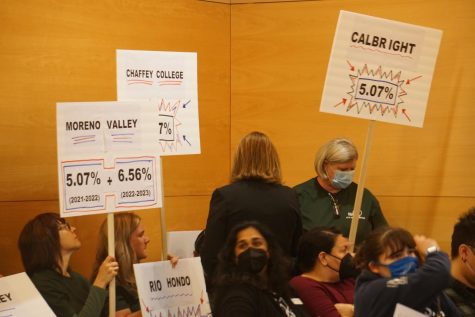
Before Mt. SAC’s Board of Trustees entered closed session, Faculty Association President Emily Woolery and four individuals from the business division spoke before them.
The opening speech by Woolery was critical of the district’s budget allocations and how the district has presented them as being linked to enrollment metrics.
“They use this narrative to state they cannot provide equity to the faculty’s healthcare benefits allowance,” Woolery said. “Executive management’s conservative predictions do not match the reality in which we are operating.”
These figures, which have been provided by Morris at past meetings based on the Student Centered Funding Formula, were strongly criticized by Woolery and Business Administration Chair Edwin Estes.
Woolery stated that the college’s general fund reserves have averaged $31 million for the past five years and that the college ends each year with additional reserves. In that same time period, faculty had made similar requests to the district and faced the district’s attempt to save more funds in 2019 by shifting healthcare providers.
Where Woolery phrased the issue as regarding equity and the college’s general fund reserves, Estes listed out the percent increases to salary that other groups on campus have received.
“We do not have a revenue problem,” Estes said. “What we have is an allocation problem.”
Those that spoke encouraged the board to provide faculty with a full cost-of-living-adjustment of 5.07% and asked for a raise alongside this request.
Attorney and law professor Catherine McKee provided statistics from the Bureau of Labor Statistics to further bolster why faculty feel the raise is needed and why the full amount still clocks in under an ideal amount.
“Even if we were to receive fully funded COLA of 5.07%, we would still be running behind the 8.5% increase in the consumer price index,” McKee said. “We ask you to consider increasing our salaries and benefits to at least keep pace with the consumer price index.”
Mathematics professor Debroah Rivers shared a brief look into the struggles she has faced recently, as students adapted to a different way of learning due to COVID-19 and the steps she has taken to help students get through math as the implementation of AB 705 has made students overwhelmed.
She concluded her comment by asking for the full COLA and a raise for professors like her that put in more work than supplemental hours would credit them with.
This experience echoed the examples brought up by Woolery of adjuncts working other jobs in order to afford healthcare.
“I recently worked with an adjunct professor who had to take a second job at a fast food employer so that they could afford healthcare coverage,” Woolery added. “Another adjunct shared that they work three jobs to provide for their family.”
Paralegal professor Abby Wood simplified all of these concerns into a simple idea. If enrollment metrics are going down and we need to improve enrollment for better funding, Wood argued that the college needs to increase its distance learning offerings instead of continuing to prioritize in-person instruction on the schedule.
“Students prefer to be online,” Wood said. “When the paralegal program transitioned to be fully online during the pandemic, our enrollments increased by 31%.”
Before this time, the program had declining enrollment. Wood further explained that students and the world have changed since COVID-19.
“We need to also increase DL [distance learning] instruction. We can only teach where the students are,” Wood said. “Right now at least, they’re online.”
In between the sessions, faculty set up a booth in front of the library where the FA had its own table for members to receive refreshments and shirts.
After the board returned from closed session, more faculty were there to greet them for public comment.
With several FA members filing the halls for public comment and recognitions, only two individuals spoke on negotiations before the FA report.
Adjunct Teresa Landeros came to share her appreciation that the college provides adjuncts with job security in the one class priority and encouraged the college to approve two class priority to give adjuncts more of a voice on campus. She also voiced support for all faculty by asking the board to approve the raise.
Noncredit adjunct ESL instructor Marina Mclaughlin closed out faculty comments by asking for the raise and explained how one class priority has provided her with job security and how she also is advocating for further improvements for adjuncts and all faculty in negotiations.
All FA members joined together behind Woolery during her report for the FA. Among other requests for the raise, she brought up side letters for remote work and other safety issues going forward.
After describing the current status of the negotiations team and the things the union is still trying for, the group cheered for future negotiations.
The next FA executive board will meet on May 31, the full representative council will meet on June 7 and the next Board of Trustees meeting is on June 22.



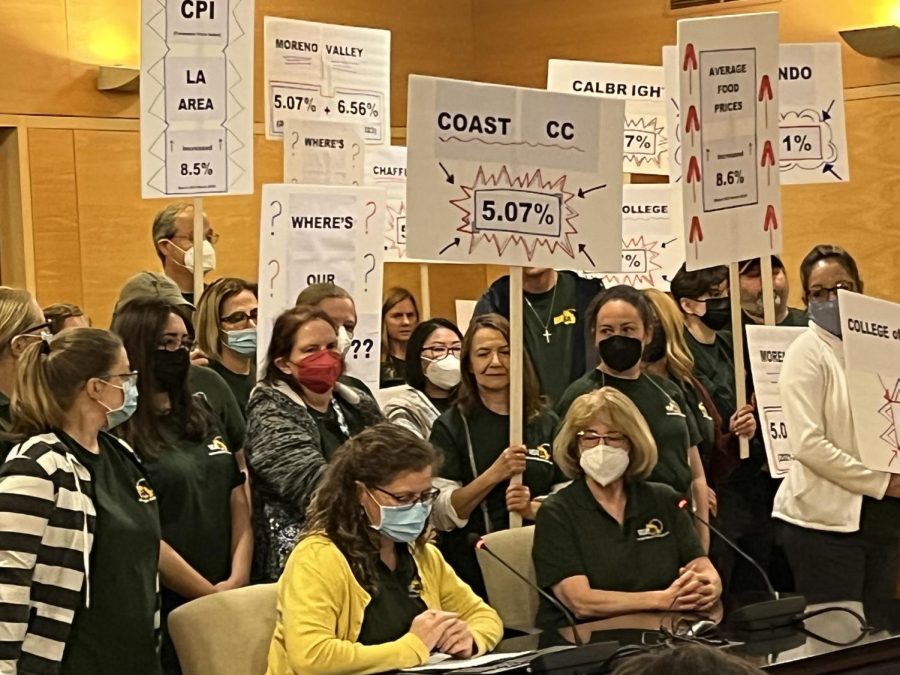
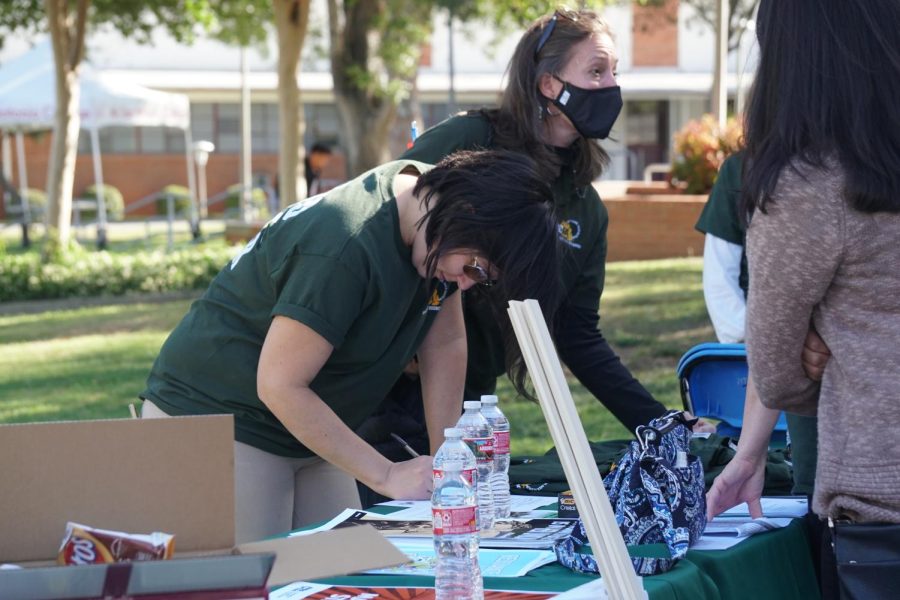


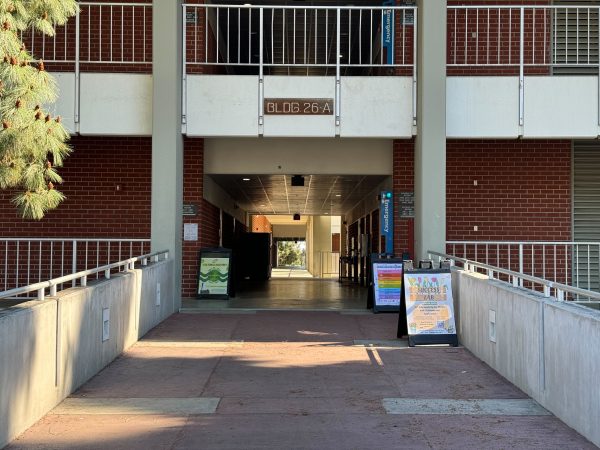

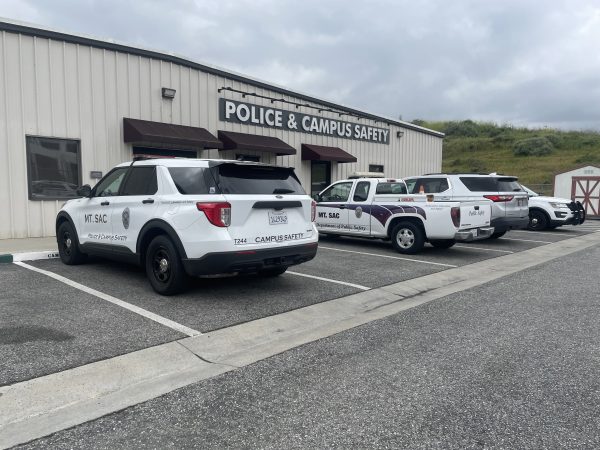

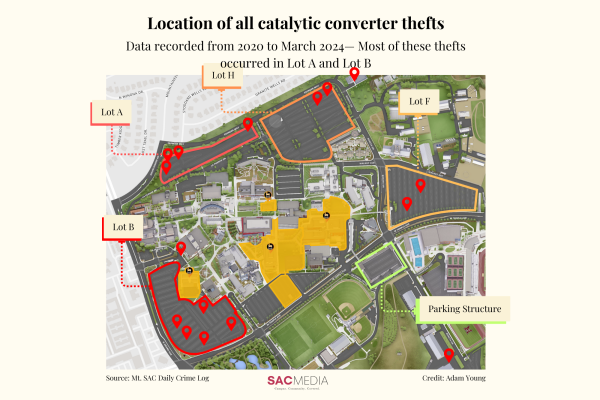



Eric Kaljumagi • May 16, 2022 at 11:22 am
Nicely reported! Thank you for keeping an eye on the actions and inactions of the Mt. SAC Board of Trustees.